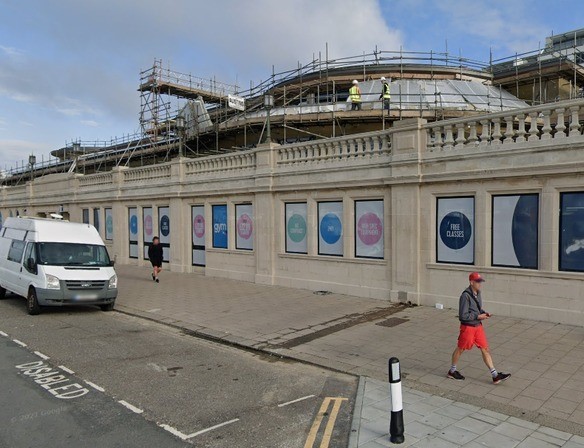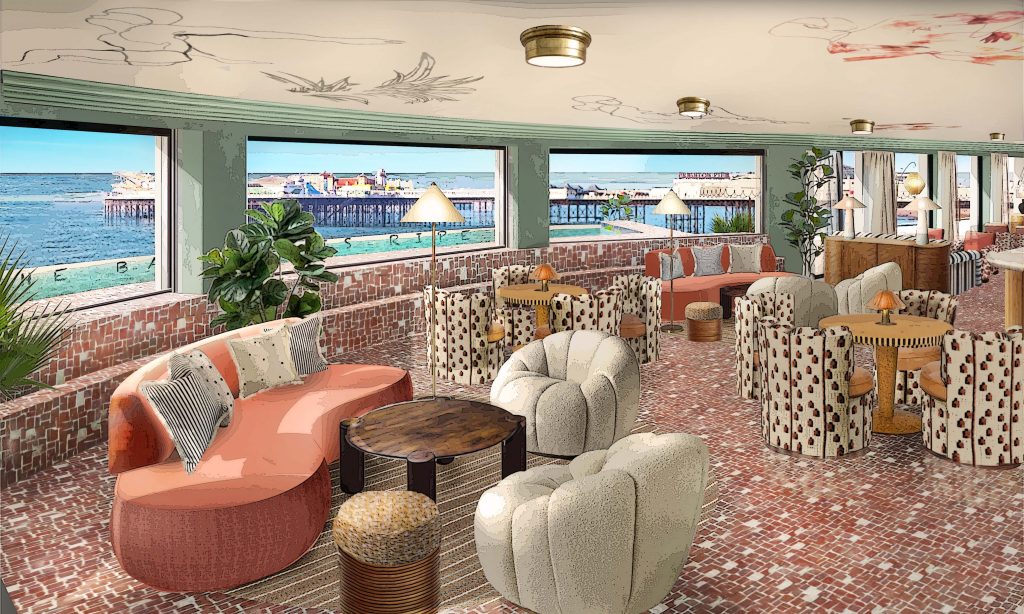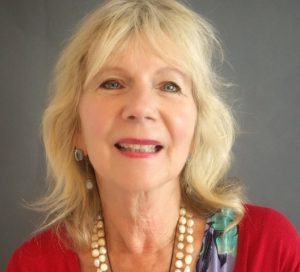Police said that people leaving an exclusive private club in Brighton could become victims of crime if it was granted a 2am licence.
Soho House wants its new Madeira Drive venue – the Little Beach House – to stay open until 2am daily.
But Brighton and Hove City Council’s licensing policy normally requires an 11pm closing time for private members’ clubs.
The club’s representatives spent six hours trying to persuade a licensing panel, made up of three councillors, to make an exception.
They told the licensing panel hearing yesterday (Monday 14 March) that they could compromise on the licensing hours at the venue’s co-working space, Soho Works, restricting the hours from 8am to 10pm.
Soho House faced no objections to the proposed hours for its public restaurant, The Kiosk, which could trade from 10am to midnight. The closing time would be in line with council policy.
But Sussex Police licensing officer Mark Thorogood said that a 2am licence for Soho House’s private members’ club put customers at risk of becoming the victims of crime.
He said that the hours coincided with when most crimes occurred on the seafront. And the venue was in Queen’s Park ward which had the third-highest level of police-recorded alcohol-related incidents. The neighbouring Regency ward had the highest rate of alcohol-linked crime in Brighton and Hove.
The panel was told that Soho House’s private club would have a capacity of 500, adding to the volume of people in the busy centre of Brighton.
Mr Thorogood said: “I wish it was the case that venues could state that they would take steps to ensure their patrons arrive home safely but that is simply not possible.
“You’re going to have people who leave at maybe 11pm and want to carry on their night in Brighton at other venues. They might decide to walk to the station for the last train rather than take a taxi locally.
“It might be a hot summer’s night and they might just want to sit on the beach. It is the issue of when they have left the premises we are concerned about.”
Customers would be encouraged to leave via Madeira Drive, which had no taxi rank or pick up point, the panel was told.
Mr Thorogood said that this could result in vehicles backed up to the Aquarium roundabout and beyond because the road was one-way.

He was concerned that the Soho House submission was not up to date because it said that the venue was next to the Brighton Wheel which came down in 2016.
Sussex Police also said that alcohol-led events such as weddings and birthday parties should not be allowed.
Trevor Scoble, from the Kingscliffe Society, was concerned about the effect of up to 40 events a year closing Madeira Drive and said that the one-way street would end taxi pick-ups from the area.
He also raised safety concerns for people leaving the venue because, he said, the roads leading north off Marine Parade had low-level lighting.
Mr Scoble said: “They’re residential streets and very narrow. These present a problem to everyone. They’re uninviting and this is where the crime occurs.”

Soho House member Marvin Avilez, who lives in Brighton, supported the application. He said that the company held members to a high standard of behaviour – and that it was not alcohol-led but a networking venue for creative people to work and socialise.
Soho House’s lawyer Lana Tricker said that the venue was not a night club or a stop-off point for a pub crawl but a destination venue in its own right for its members from the film, media and creative industries.
She said that the company held long leases on all its venues and had invested £20 million in the Little Beach House.
The Brighton venue was within the council’s cumulative impact zone (CIZ) where tougher rules restrict new alcohol licences because the area was “saturated” with licensed premises.
Ms Tricker said that Soho House operated in “cumulative impact areas” in other cities, including Soho and Shoreditch, with 3am licences.
She said: “Soho House is not a night club environment. It doesn’t promote overcrowded areas. The requirement that alcohol be ancillary to food or only to seated people, we cannot agree to that as members can come in for a drink should they wish.
“We have a proven track record of being able to regulate the consumption of alcohol with members. We do not have a history or reputation for drunkenness or irresponsible behaviour.”

The private members’ club would have its own restaurant, Club Cecconi, where customers would be seated at tables and waited on.
But Ms Tricker said that the licensing conditions should not require customers to be served drinks at tables. Instead, the conditions should only require that table service was available throughout the venue, she said.
One panel member, Labour councillor Jackie O’Quinn, said that table service was something that the council always asked of businesses with a café-style licence similar to the licence sought by Soho House.
She said: “You’re saying people want to move around but what we would like to have is a condition … that people are served by a waiter or waitress which is pretty standard.”
The panel retired to consider its decision which should be made public within five working days.









So the Police are saying there is a chance of being a victim of crime, should the Police not step up patrols at high risk times as they obviously know the critical times of crime.
I stopped going to St James Street and the seafront area as i was a victim of crime.
But how does the council expect the area to improve and attract investment if they don’t grant licences.
Soho House will be such a net positive for Brighton, that the council should be not only swiftly approving this licence request, but seeking ways to work with Soho House on improving Brighton’s local economy.
Whilst one can understand the council’s concerns about “cumulative impact areas”, the council would perhaps be more effective if it looked at effectively regulating and policing existing premises. Certain areas of Brighton, including the seafront are magnets for crime. However, it feels a stretch to see how this is a vote against Soho House, rather than for it.
Over Christmas, I stayed on the seafront and watched as numerous women were harassed by drunken groups of men late into the evening. I walked a woman down the street, from the seafront halfway through the lanes because she had a couple of ‘admirers’.
That the area is ineffectively policed is a given, and if anything the concerns addresses in this hearing are more of an indictment about the council’s inability to provide basic public safety than anything related to private businesses.
In fact, I would harbour that many Brighton residents would be much better served with a venue like Soho House – including for weddings and other events – given the security of the location and professionalism of the staff. I, for one, would much rather people I knew spend their evenings at Soho House than many other venues in Brighton for this very reason,
Further, by denying the late license, the council is effectively infringing not only on the venue’s business model, but also on the wages of staff and related taxes during those hours. Which, over time, are quite significant. Soho House is not only a strong employer, but also an employer that up-skills its staff. Staff who go on to work with other venues, and take the Soho House levels of service and practices with them.
And given the shocking vacancies and underutilisation blighting the Brighton area, bringing in high-quality employers that can build area capacities of skills should be very high on the council’s agenda.
Finally, the Soho House offer is not only for a destination club, but also for tourism – which the city direly needs now – and Soho Works. The latter is a hub for Brighton’s creatives and entrepreneurs.
After being a member for some years, there are members of Soho House who are royalty and live in stratospheres. I have found them to be the exceptions rather than the rule. Most members I meet are hard-working creatives and entrepreneurs. People who work hard, and like to relax late into the evening and enjoy the fruits of their labours. They are generally good people who pay the membership fee to be part of a truly unique global community. And Brighton is an exciting destination for them.
The city has profound cultural heritages and has the potential to again be a great satellite for London’s creative sector. And indeed, Soho House attracts people from all over the world who spend money on the level of quality it is famous for.
Rather than seek to pin Soho House down because of the city’s failures to address crime, the city would do well to welcome Soho House with open arms, and as mentioned, properly enforce laws on existing venues. Rather than seek to limit Soho House, for its own failures. Brighton needs Soho House, and I hope that the city will do whatever they can do to accommodate this and every new businesses heavily investing in the future of Brighton.